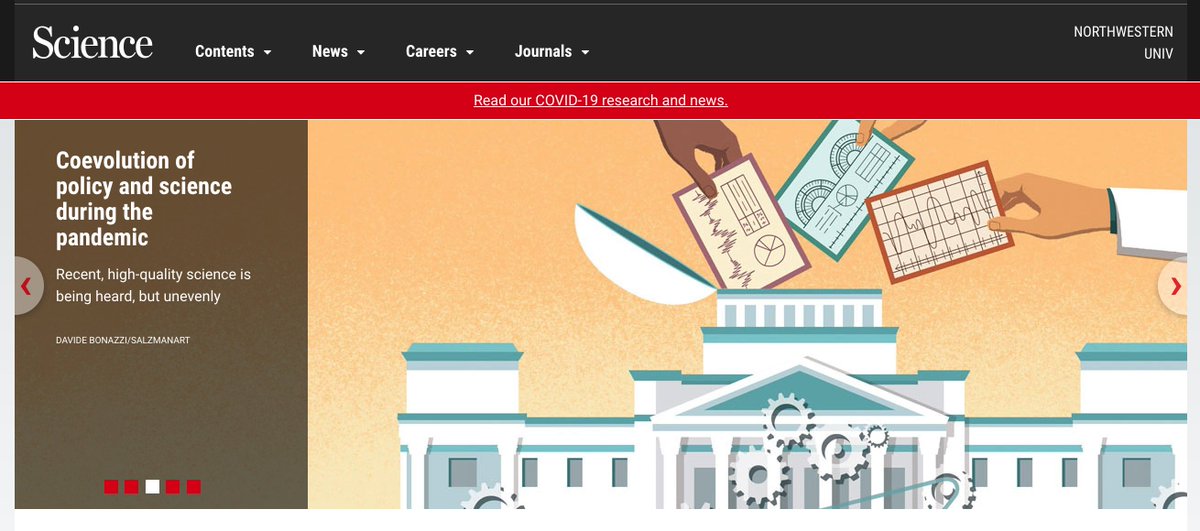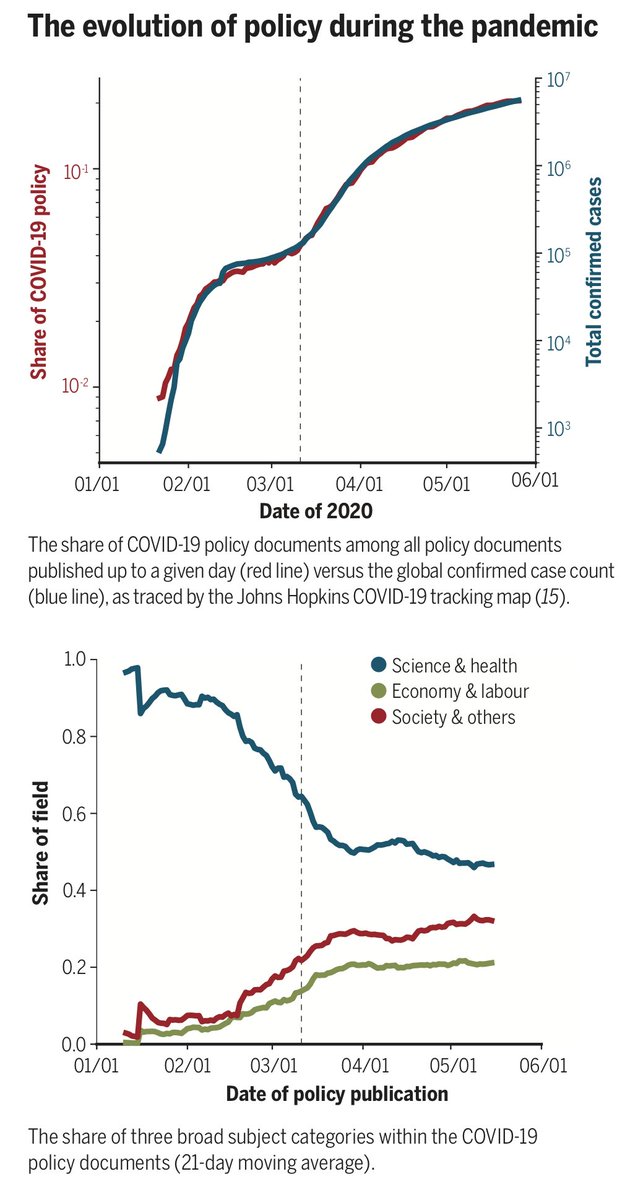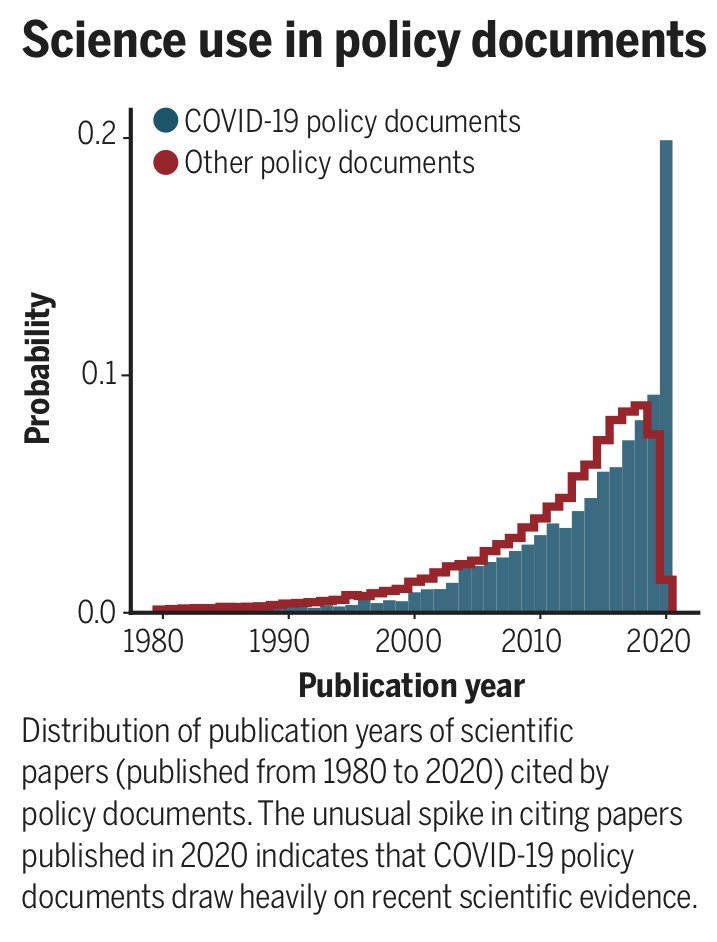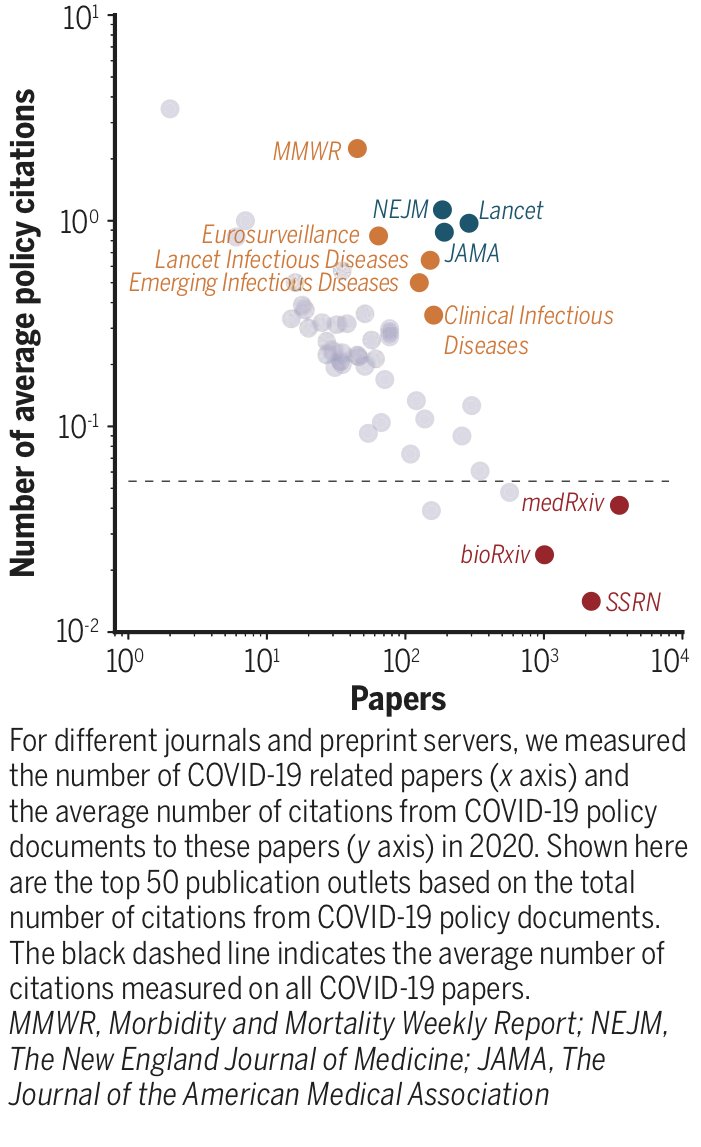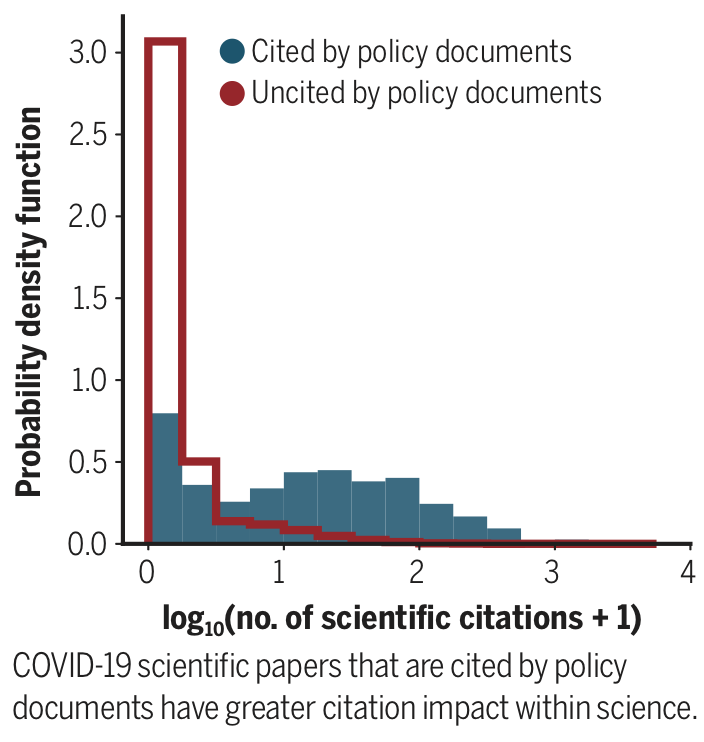Our latest peer-reviewed research, published today in @ScienceMagazine
We examined the coevolution of policy and science during the pandemic, finding that recent, high-quality science is being heard, but rather unevenly.
https://science.sciencemag.org/content/371/6525/128
#ScienceOfScience
thread 1/n
We examined the coevolution of policy and science during the pandemic, finding that recent, high-quality science is being heard, but rather unevenly.
https://science.sciencemag.org/content/371/6525/128
#ScienceOfScience
thread 1/n
Disconnects btwn science & policy, where important scientific insights may be missed by policy-makers and bad scientific advice may infect decision-making, are a long-standing concern. Esp in the pandemic setting, where policy and scientific understanding both evolves rapidly. 2/
This raises fundamental questions. (1) Is policy development closely linked to evolving scientific understanding, or largely separated from it? (2) Does policy development engage high-quality science? (3) What institutions play central roles in connecting policy with science? 3/
Here we combine two large-scale databases capturing policy and science and their interactions. First we analyzed a novel, large-scale database, Overton, which records policy documents sourced globally from government agencies, think tanks, and IGOs across 114 countries 4/
Then, for each policy document, we match scientific references to our second dataset, Dimensions, a large-scale publication and citation database, allowing us to examine the role of science in the global policy response to COVID-19. 5/
We find policy attention closely mirrors the case dynamics, showing a remarkable synchrony btwn the
share of COVID-19 policy docs among all policy docs and the number of total confirmed cases. And policy priority shows a visible shift from health to socioeconomic issues 6/
share of COVID-19 policy docs among all policy docs and the number of total confirmed cases. And policy priority shows a visible shift from health to socioeconomic issues 6/
Importantly, our analysis suggests that many policy documents in the COVID-19 pandemic substantially access recent (fig a), peer-reviewed (fig b), and high-impact (fig c) science. And policy documents that cite science are especially highly cited within the policy domain. 7/
The peer review result is quite interesting to me. Amid growing concerns over the quality and abundancy of covid research posted on preprints, it shows during the crisis, peer-reviewed journals remain a crucial institution in supplying scientific evidence for policy making 8/
But, there's a heterogeneity in the use of science across policy institutions. The tendency for policy docs to cite science appears mostly concentrated within IGOs, such as WHO; much less so in national governments, which consume science largely indirectly through the IGOs. 9/
The close co-evolution btwn policy and science offers a useful indication that a key link is operating, but it is not a sufficient condition for the effectiveness in containing the pandemic. 10/
After all, national policy approaches and death rates have varied dramatically. While some countries have been quite successful in containing the outbreak, some have been actively antagonistic to IGOs and scientific advice. 11/
In the current picture, science is breaking through, and scientific results are being heard, but they are not being heard everywhere. This heterogeneity can be especially alarming in the era of global connectivity. 12/
The world is fighting a war against a common but invisible enemy. Making sure the right science prevails in policy can help us collectively reach the winning side. 13/
Major credit goes to my student @yian_yin and postdoc @gaojian08, who contributed equally to this work, as well as my partner in crime @bfjo
This work also represents a major new direction that we have been pushing, toward the impact of science beyond science. More soon! 14/
This work also represents a major new direction that we have been pushing, toward the impact of science beyond science. More soon! 14/
For a general audience take on the paper, check out this Kellogg Insight article: https://insight.kellogg.northwestern.edu/article/covid-science-policy
[15/15]
[15/15]

 Read on Twitter
Read on Twitter